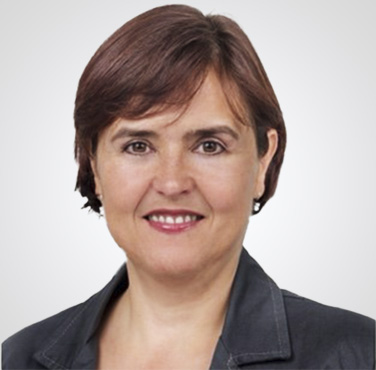The Human Safety Net
World Children’s Day.
Interview with an expert: in Switzerland, too, there is still much to be done.
Every child has the right to grow up in safety. This and much more is what the United Nations decided more than 35 years ago when it ratified the UN Convention on the Rights of the Child, which almost all UN member states have signed. But the reality is different. On World Children’s Day, expert Christina Weber Khan explains how Switzerland can still improve.
Ms Khan Weber, why do children need special rights?
Because children and young people are particularly vulnerable and rely on support in many areas of life. They are still in the middle of their physical and mental development, which makes them more vulnerable to exploitation, neglect or abuse.
It is also important for children and young people to be perceived and heard as independent individuals with their own opinions. When we talk about “the rights of the child”, we are talking about fundamental values that apply worldwide when dealing with children, regardless of their social, cultural, ethnic or religious background.
When we think about violations of the rights of the child, we’re more likely to be thinking about war zones or poorer countries. How well are children’s rights observed in Switzerland?
Switzerland is well placed in the international rankings in many areas. Nevertheless, there is still room for improvement. The following three examples demonstrate this:
- The right to education: We have high-quality education in Switzerland, but it is not equally accessible to all children. Low-income families often lack the means to pay for extracurricular or cultural activities, camps or tutoring. This places additional demands on parents who are not familiar with the system in Switzerland, which results in inequality.
- Protection against exploitation and violence: Switzerland has a good child protection system. Corporal punishment is prohibited, but the right to a non-violent upbringing in the family is still not enshrined in law. As long as “A smack never did any harm!” is considered an acceptable opinion, children’s rights will continue to be violated.
- The right to mental health: There is a great need for action in this respect here, as in other countries. Children have to wait far too long for outpatient or inpatient psychotherapy appointments, and our specialists are totally overbooked. The coronavirus pandemic really exacerbated this problem, which demonstrates very clearly just how vulnerable children are.
How should we explain children’s rights to children? At home as parents or at school?
It’s best to do it as part of everyday life, as much as is possible, and in an age-appropriate way. There are good books and videos on the subject. Unfortunately, it can be hard to discuss this topic in the classroom because the structures in our schools allow little scope for flexibility.
I also think it’s very important to address children’s problems directly with them. We should support children and young people in getting involved and expressing their opinions. Co-determination and participation is a right that children have, but it’s often inadequately implemented. Of course, adults still bear the responsibility, but children’s opinions should be heard and taken into account when making decisions.
You are a research assistant at MegaMarie, the play, crafting and meeting place for families and young children at the Marie Meierhofer Institute for Children. To what extent are children’s rights strengthened and promoted at MegaMarie?
In a variety of ways. Think of the right to play and leisure, or the right to education, support and community. At MegaMarie, children of all different backgrounds who live in Switzerland, as well as refugee children, are allowed to be free and creative, without any pressure to learn. They do crafts, paint and receive holistic support. The children and their accompanying adults get to experience this in a community that benefits everyone.
For example, a 6-year-old girl who was staying with her mother in the nearby federal asylum centre came to MegaMarie and found her space and the opportunity to express herself creatively. The girl created little cakes out of salt dough. You could sense how welcome she felt. Children gain self-confidence when they feel respected and realise that they are no less important than all the other children.

Christina Weber Khan
Children’s rights expert, MMI employee

 Contact
Contact
 Find an agency
Find an agency









 Close
Close




